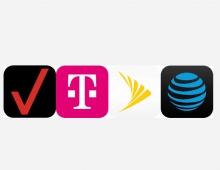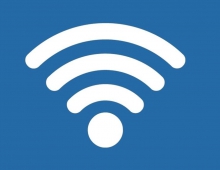
Comcast Wins Web Traffic Case Against FCC
A U.S. appeals court dealt a setback to the Federal Communications Commission's authority to oversee the Internet, tossing out an agency ruling that forced Comcast to change the way it managed its broadband network.
The United States Court of Appeals for the District of Columbia Circuit issued its opinion in Comcast v. FCC, No. 08-1291, which petitioned the Court to review an FCC Order issued in August of 2008.
For years the FCC, Internet providers and public interest groups have squared off over potential regulations for governing access and management of high-speed Internet service.
The FCC in 2008, in response to customer complaints, cited Comcast for blocking users from some peer-to-peer applications and ordered the company to stop.
While Comcast had said it would change its network management practices to ensure all Internet traffic was treated essentially the same, it asked an appeals court to review whether the FCC had the authority to impose such requirements.
Comcast also defended its practice of blocking services like BitTorrent, saying it was trying to manage Web traffic flowing over its network to prevent degradation of service for the majority of its users.
The U.S. Court of Appeals for the District of Columbia sided with Comcast and said that the FCC failed to show that it had the necessary authority to impose such restrictions on the provider's network operations.
Federal Communications Commission Spokesperson Jen Howard:
"The FCC is firmly committed to promoting an open Internet and to policies that will bring the enormous benefits of broadband to all Americans. It will rest these policies -- all of which will be designed to foster innovation and investment while protecting and empowering consumers -- on a solid legal foundation.
"Today's court decision invalidated the prior Commission's approach to preserving an open Internet. But the Court in no way disagreed with the importance of preserving a free and open Internet; nor did it close the door to other methods for achieving this important end."
"We are gratified by the Court's decision today to vacate the previous FCC's order. Our primary goal was always to clear our name and reputation, Comcast said. "We have always been focused on serving our customers and delivering the quality open-Internet experience consumers want. Comcast remains committed to the FCC's existing open Internet principles, and we will continue to work constructively with this FCC as it determines how best to increase broadband adoption and preserve an open and vibrant Internet."
The FCC last month unveiled an ambitious plan to upgrade Internet access for all Americans and shift spectrum from television broadcasters to support the huge demand for smartphones and other wireless devices.
The ruling could have major consequences and will likely set off a flurry of lobbying at the FCC by Internet access and content providers like Google, Verizon and AT&T.
For years the FCC, Internet providers and public interest groups have squared off over potential regulations for governing access and management of high-speed Internet service.
The FCC in 2008, in response to customer complaints, cited Comcast for blocking users from some peer-to-peer applications and ordered the company to stop.
While Comcast had said it would change its network management practices to ensure all Internet traffic was treated essentially the same, it asked an appeals court to review whether the FCC had the authority to impose such requirements.
Comcast also defended its practice of blocking services like BitTorrent, saying it was trying to manage Web traffic flowing over its network to prevent degradation of service for the majority of its users.
The U.S. Court of Appeals for the District of Columbia sided with Comcast and said that the FCC failed to show that it had the necessary authority to impose such restrictions on the provider's network operations.
Federal Communications Commission Spokesperson Jen Howard:
"The FCC is firmly committed to promoting an open Internet and to policies that will bring the enormous benefits of broadband to all Americans. It will rest these policies -- all of which will be designed to foster innovation and investment while protecting and empowering consumers -- on a solid legal foundation.
"Today's court decision invalidated the prior Commission's approach to preserving an open Internet. But the Court in no way disagreed with the importance of preserving a free and open Internet; nor did it close the door to other methods for achieving this important end."
"We are gratified by the Court's decision today to vacate the previous FCC's order. Our primary goal was always to clear our name and reputation, Comcast said. "We have always been focused on serving our customers and delivering the quality open-Internet experience consumers want. Comcast remains committed to the FCC's existing open Internet principles, and we will continue to work constructively with this FCC as it determines how best to increase broadband adoption and preserve an open and vibrant Internet."
The FCC last month unveiled an ambitious plan to upgrade Internet access for all Americans and shift spectrum from television broadcasters to support the huge demand for smartphones and other wireless devices.
The ruling could have major consequences and will likely set off a flurry of lobbying at the FCC by Internet access and content providers like Google, Verizon and AT&T.





















